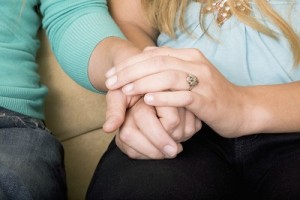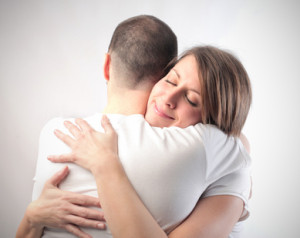- Calls to this hotline are currently being directed to Within Health or Eating Disorder Solutions
- Representatives are standing by 24/7 to help answer your questions
- All calls are confidential and HIPAA compliant
- There is no obligation or cost to call
- Eating Disorder Hope does not receive any commissions or fees dependent upon which provider you select
- Additional treatment providers are located on our directory or samhsa.gov
Grief & Loss: When BED Intensifies Due to Loss
Contributor: W. Travis Stewart, LPC, NCC writer for Eating Disorder Hope

You might feel sadness, anger and confusion at expected times like funerals, birthdays and holidays or when visiting a cemetery. At other times the grief may come upon you like a mugger who brazenly attacks in broad daylight. It may ambush you in the middle of a TV show or when a song comes on the radio. It may overwhelm you through a familiar smell or the way the evening light comes through the window.

For those with binge eating disorder (BED) this experience of loss and powerlessness may heighten the urges to binge eat. Along with shame, grief is one of the most bitter of human emotions. And it drives us to look for ways of escape. When you have learned to use food to anesthetize your pain and comfort your heart, urges to eat will likely come like the Simon and Garfunkle line, “hello darkness, my old friend.”
This familiar darkness of binge eating can lead to depression and despair beyond the grief itself. And yet, there are ways to grieve without staying in the darkness.
Feel the Grief
To avoid the crushing weight of grief you must not avoid the grief but enter into. Why? Because when you lose someone grief is the right thing to feel. When we deny it we deny the value of that person’s life.
 Don’t Judge the Grief
Don’t Judge the Grief
How we each grieve will be different. Don’t assume your grief should look like another person’s grief. Or, that theirs should mirror yours. Grief is individual. Give yourself and others space to grieve in ways both expected and unexpected.
Honor the Grief But Don’t Make it a Permanent Resident
Acknowledge the pain of grief, honor it as a houseguest for a time, but like relatives who have overstayed their welcome, don’t allow it to be a permanent house guest. Be wary of letting grief redecorate your home.
Look for the Light of Hope
How long to grieve is not the question (one of the most foolish things a person can say is, “It’s been X number of months, it’s time to move on”) but, rather, it is how much of the sun is blocked out by the grief. Seek the light, through others, through faith, through good memories of the person and expressing gratitude for how he or she enriched your life.
“You will lose someone you can’t live without, and your heart will be badly broken, and the bad news is that you never completely get over the loss of your beloved. But this is also the good news. They live forever in your broken heart that doesn’t seal back up. And you come through. It’s like having a broken leg that never heals perfectly—that still hurts when the weather gets cold, but you learn to dance with the limp.”
―Anne Lamott
About the Author:
Travis Stewart earned a Master of Arts in Counseling (2001) and a Master of Arts in Theological Studies (2003), both from Covenant Seminary in St. Louis, MO. Travis is a Licensed Professional Counselor in the State of Missouri and a writer for Eating Disorder Hope and Addiction Hope.
Community Discussion – Share your thoughts here!
Everyone experiences grief or loss in their life at some point. What has been your experience with disordered eating and grief? How have you learned to cope? What have you found to help you regain your strength in recovery from grief and disordered eating?
The opinions and views of our guest contributors are shared to provide a broad perspective of eating disorders. These are not necessarily the views of Eating Disorder Hope, but an effort to offer a discussion of various issues by different concerned individuals. We at Eating Disorder Hope understand that eating disorders result from a combination of environmental and genetic factors. If you or a loved one are suffering from an eating disorder, please know that there is hope for you, and seek immediate professional help.
Last Updated & Reviewed By: Jacquelyn Ekern, MS, LPC on September 3, 2015. Published on EatingDisorderHope.com
 Don’t Judge the Grief
Don’t Judge the Grief